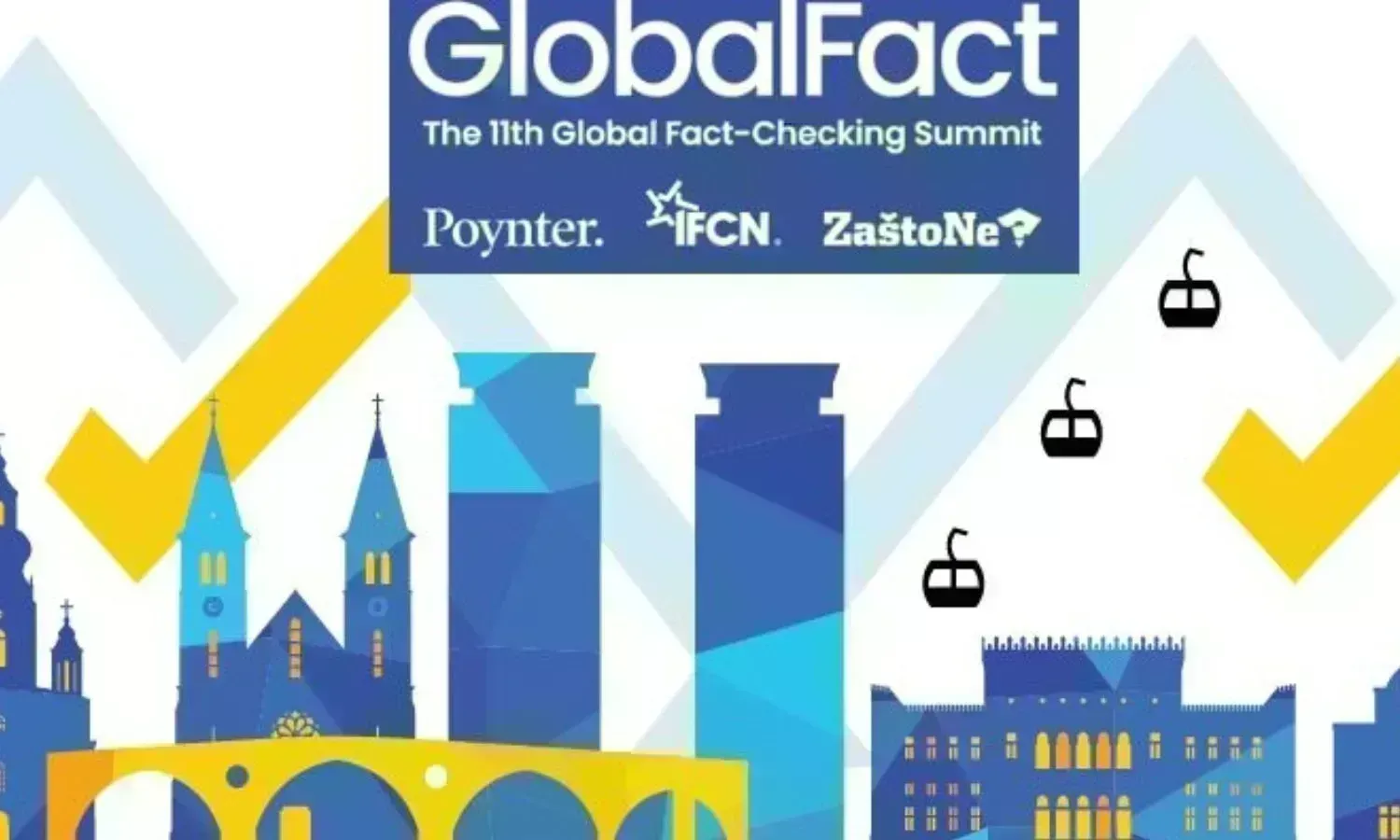Global Fact 11 conference: Sarajevo statement highlights growing attacks on fact-checkers
Reaffirming their commitment to adding value to the public debates through fact-checking, signatories of the IFCN including Telugupost asserted that the debunking of misinformation and verification of facts;

Sarajevo, Bosnia and Herzegovina: Reaffirming their commitment to adding value to the public debates through fact-checking, signatories of the International Fact-Checking Network (IFCN) including Telugupost asserted that the debunking of misinformation and verification of facts should never be considered a form of censorship.
Telugupost is a verified signatory of the IFCN’s Code of Principles which affirms high standards for accuracy, non-partisanship, and transparency in fact-checking journalism.
Satya Priya BN, Fact Check Lead, is representing Telugupost at Global Fact 11 conference, a three-day event which began in Sarajevo, Bosnia and Herzegovina on Wednesday. She was a speaker at the august gathering and conducted a session on “Findings from the India elections.”
This annual gathering brings together fact-checkers, journalists and researchers from around the world. On Day 1, the speakers discussed issues ranging from freedom of expression to growing attacks on fact-checkers to new challenges due to the widespread use of artificial intelligence tools,
In her opening remarks, Angie Drobnic Holan, IFCN director, read out the Sarajevo statement which has been drafted and signed by 130 fact-checking organization from 80 countries. The statement highlighted how the fact-checkers have been subjected to verbal abuse, doxxing, coordinated attacks, legal threats, political pressure and even physical violence in recent years.
“Censorship removes information. Fact-checking adds it,” the statement read.
The statement clarified that the fact-checking does not seek to expunge or erase the false or misleading messages, but it makes an effort to preserve them as part of the public debate while offering evidence necessary to accurately inform that debate.
It underscored the need for preserving false claims and said the public should be provided with the appropriate context and verification in order to determine the claims’ veracity. Some information may be removed if it causes actual harm.
The rise of new artificial intelligence (AI) tools has shown the potential for these tools to play a role in spreading disinformation much faster highlighting that the need for accuracy is more important than ever, it added.
The full text of the Sarajevo statement is as follows:
At the annual meeting of the world’s fact-checkers in 2024 in Sarajevo, Bosnia and Herzegovina — our 11th GlobalFact meeting — it is time to restate our longstanding commitment to access to information and freedom of expression, for all people and across borders.
All people have the right to seek, receive and impart information and ideas. Fact-checking is deeply rooted in these principles. Fact-checking requires the right and ability to find sources, read widely and interview experts who are free to speak candidly — all as part of a rigorous methodology and process. This is the foundation on which all true fact-checking is built. Fact-checking is part of a free press and high-quality journalism, and it contributes to public information and knowledge.
Fact-checking seeks to provide additional information, setting out evidence to correct and clarify messages that are false, misleading or lack important context. Fact-checking does not seek to expunge or erase these messages, but to preserve them as part of the public debate while offering evidence necessary to accurately inform that debate.
Despite this, fact-checkers have in recent years been relentlessly attacked as online censors, and after such attacks many have been subject to verbal abuse, doxxing, coordinated attacks, legal threats, political pressure and even physical violence. However, as an expression of speech, fact-checking cannot be considered censorship in any true sense of the word. Censorship removes information. Fact-checking adds it.
There have been and will be necessary debates about how media and online companies host speech; how tech platforms curate and moderate public posts; and how society as a whole should define and handle illegal or harmful speech. While some information may be removed if it causes actual harm, a false claim should not be removed solely because it is false. Instead, the public should be provided with the appropriate context and verification in order to determine the claims’ veracity. At the same time, false claims should not be rewarded with popularity or virality. Additionally, with the arrival of new artificial intelligence (AI) tools, there is a growing awareness of their potential to spread false information, and the need for accuracy is more important than ever.
The public has a need for accurate information in order to make decisions about their governments, their economies, their health and all aspects of their lives. Fact-checking is a key part of giving the public accurate information and improving information ecosystems.

